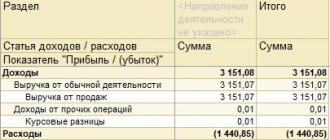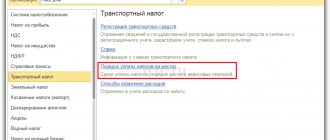A business trip involves carrying out official assignments by order of management outside the main place of work. The employer should keep in mind that only an employee on staff with whom an employment contract has been signed can be sent on a business trip. If the employment contract provides for the traveling nature of the activity on a permanent basis, then business trips are not considered business trips.
It is possible to send a person who works from home and is on the staff of an organization on official business. At the same time, he has equal rights with other employees of the enterprise. For a part-time worker sent on a business trip, the average salary level is maintained in the organization that sent him, and if the business trip coincides with the main place and the place of part-time work, then employers pre-agreed on everyone’s share of the travel expenses. Let's consider the norms and calculations of travel expenses that are relevant for 2013.
Travel expenses norms
All enterprises, be it a state organization, a private firm or a company, regardless of activity and form of ownership, exercise control over the expenditure of travel funds, subject to the Labor Legislation of Russia (Articles 167-168).
Travel expenses include the following charges:
- daily travel expenses up to 700 rubles for each day of a business trip are not subject to taxation, however, if the organization by some internal act has established a different daily allowance, then tax from individuals is levied on the amount exceeding 700 rubles;
- transport costs - the cost of tickets for all types of transport that an employee can use to get to their destination and back, do not have fixed values and depend on the cost of a travel document, which also reduces the tax base. However, if the station, airport or pier is located at a distant distance from the traveler’s place of work, then the additional costs of travel to the place of departure will also be included in transportation costs. In addition, if the collective agreement provides for reimbursement to employees of expenses not only for public transport, but also for a taxi or car rental during a business trip, then letter of the Ministry of Finance No. 03-03-06/4/80 dated July 21, 2011. provides for this option and makes it possible to take these reimbursements into account when taxing profits.
- living expenses take into account all possible payment methods and categories of housing. In addition, there may be a reservation of accommodation, which is not included in the list of additional services and, after the return of funds to the employee, can be included in the tax calculation. Additional services (beauty treatments, sauna, swimming pool, gym, maintenance and leisure clothing) do not affect the tax base. If an organization purchases housing for rent, expenses are recorded in accordance with the rental agreement. In this case, the expenses are classified as “other” and will reduce the tax base.
Beekeeping as a business is a very profitable business in Russia and Ukraine.
What should you consider before going on a business trip? We have created an interesting review about this.
Clarifications from Ministries and Departments
Answer of the Minister of Agriculture dated January 25, 2021 to question dated January 15, 2021 No. 662121
Question:
Our company carries out subsoil use operations on the basis of licenses for exploration of solid minerals. According to paragraph 1 of Article 71-1 of the Land Code of the Republic of Kazakhstan (“Land Code”), operations for mineral exploration or geological study can be carried out by subsoil users on lands that are state-owned and not granted for land use, on the basis of a public easement without receiving such lands in property or land use. According to part two of paragraph 1 of Article 71-1 of the Land Code, subsoil users carrying out operations for mineral exploration or geological study on land plots that are privately owned or in land use can carry out the necessary work on such plots on the basis of a private or public easement without seizure of land plots from private owners or land users. Based on the above, we understand that for the purposes of land use in relation to geological exploration work, land allotments (acts for land use rights) are not issued, since the use of land plots for mineral exploration is carried out without their withdrawal, and the basis for carrying out the work will be an established easement (private , or public). According to the Geological Exploration Plan of our company, exploration operations using land plots are gradually distributed both territorially and by types of work, including: the first stage (without drilling operations) – geophysical/geochemical work on most of the licensed territory: - geological mapping; — geochemical work (selection of geochemical soil samples, analysis, processing and interpretation of geochemical data); — geophysical work, including ground geophysics and airborne geophysics; the second stage (drilling work) - work on geological exploration drilling within the coordinates of land plots planned for this: - core/coreless drilling, core documentation, preparation of access roads and drilling sites. Taking into account the above, we ask you to clarify the procedure for applying the provisions of Chapter 7 of the Land Code on the following issues:
1: Is it mandatory to first obtain an easement (public or private) as a legal basis (from the point of view of land legislation) to begin using a land plot for exploration of solid minerals?
2: Is it sufficient to obtain an easement only for land plots for geological exploration drilling within the coordinates planned for this (Second stage of geological exploration work, above), without obtaining an easement for land plots where geophysical/geochemical work is expected to be carried out over a vast territory (First stage of geological exploration works, above)? 3: Do we understand correctly that with the entry into force of the Code of the Republic of Kazakhstan on Subsoil and Subsoil Use, payment for public easements was canceled, while preserving the conditions provided for in parts one and two of paragraph 7 of Article 69 of the Land Code on possible payments to owners or users of land plots encumbered by a public easement? 4: What is the procedure for applying for a public easement on a land plot for carrying out exploration operations for solid minerals and what regulatory documents govern it?
Daily travel expenses
Daily allowance
- these are funds for which a person is not required to account. Whether you went to a restaurant or put it in a “box” is no one’s business. A daily allowance is accrued for each day of stay on a business trip, which includes both rest days and time spent on travel, however, if the assignment is carried out in the same or in a neighboring locality, and the person is not deprived of the opportunity to live at his place of residence, then the daily allowance is , as a rule, are not issued. Each manager is free to reserve the right to determine the amount of daily allowance not only for all employees of the organization, but also for individual staff units, for example, a leading specialist and a worker can receive daily allowance in different amounts.
Daily allowance for foreign business trips
Any employee trip must be documented correctly, this will prevent possible claims from the tax authorities.
The organization develops an internal document (regulations, order) regulating the procedure for processing business trips. It is not mandatory, but it is convenient if all the features are described in detail (for example, the amount of daily allowance for different countries and what expenses are reimbursed). Daily allowance is compensation to an employee for expenses when living outside his permanent place of residence (Article 168 of the Labor Code of the Russian Federation). The organization has the right to set any amount of daily allowance. However, there is the following subtlety - from the amounts exceeding the established norms under the Tax Code, the enterprise will accrue:
- Personal income tax (generally 13%);
- insurance premiums (PFR 22%, FSS 2.9%, FFOMS 5.1%).
The norms established by law are (clause 3 of article 217, clause 2 of article 422 of the Tax Code of the Russian Federation):
- 700 rubles for trips within Russia;
- 2500 rubles for a business trip abroad.
Russian legislation is constantly changing, but whether new non-taxable daily allowances will be established for a business trip to Belarus in 2021, or standards for business trips to other foreign countries, is still unknown.
The company can set its own daily allowance for travel to each country. For a one-day trip abroad, the daily allowance is 50% of the established amounts (clause 19 of the Regulations “On the peculiarities of sending employees on business trips”, approved by Decree of the Government of the Russian Federation on October 13, 2008 No. 749).
Example
Polet LLC sent its employee A.P. Vasilyev. on a business trip to Kazakhstan. The company has approved the Regulations on Business Travel, which states: “business trip to Kazakhstan - daily allowance (2019) is set at 3,000 rubles for each day of stay abroad.” In Kazakhstan Vasiliev A.P. stayed 2 days.
When approving the advance report, the accountant of Polet LLC made the following calculations:
2 days x 3000 = 6000 rubles - daily allowances are accrued for the days of stay in Kazakhstan,
2 days x 2500 = 5000 rubles - the norm established by the Tax Code of the Russian Federation for personal income tax purposes for daily allowances on business trips abroad,
6000 – 5000 = 1000 rubles – the amount of excess of the actual daily allowance over the norm,
1000 x 13% = 130 rubles – personal income tax is charged for withholding from Vasiliev A.P.,
1000 x 22% = 200 rubles – Pension Fund insurance premiums are accrued,
1000 x 2.9% = 29 rubles – FSS contributions are accrued,
1000 x 5.1% = 51 rubles – FFOMS contributions.
Reimbursement of travel expenses
Expenses associated with the performance of production tasks in another location are reimbursed in full based on the documents provided confirming the employee’s expenses during the trip. In cases where an employee for some reason does not provide a rental agreement for residential premises or a hotel check, reimbursement of living expenses is made in accordance with Part 2 of Art. 168 Labor Code of the Russian Federation, art. 217 of the Tax Code of the Russian Federation and letter of the Ministry of Finance of Russia No. 03-04-06-01/30 and does not exceed 700 rubles per night. Also, some expenses, if they exceed generally accepted standards, must be stipulated by internal acts and agreements approved by the team and management. This applies to daily allowances if the local agreement provides for an amount exceeding 700 rubles.
When reimbursing an employee, all payment methods must be taken into account. If the traveler paid for housing in cash, then he provides his organization with a document, an invoice and a hotel receipt (or a rental agreement). When paying by credit card, you must present a hotel receipt and a fiscal receipt upon arrival.
The dates on travel documents must be consistent with the dates of departure from the organization, arrival at the destination and possible movements during the business trip. In addition to round trip travel, commission fees and charges for airport services, travel costs to the place of departure, baggage transportation, and communication services are reimbursed and are not subject to taxation.
Duties, rights and responsibilities of the employee
6.1. The posted worker is obliged:
- inform the HR department about medical contraindications for going on business trips and submit a medical report;
- prepare for a business trip (study information, analytical and other materials, the knowledge of which is necessary to perform a job assignment, prepare the necessary materials, receive oral and written instructions from your immediate supervisor);
- after arriving at the place of business trip, notify your immediate supervisor of your arrival and settlement at your place of residence in any available way;
- at the place of business trip, introduce himself to an official of the organization to which he is sent, present a travel certificate and other documents confirming his representation on behalf of the organization;
- while at the place of business trip, fulfill its goals specified in the official assignment;
- obtain all the necessary marks on the travel certificate at the place of travel. The possibility of putting hotel stamps on travel certificates is decided on a case-by-case basis;
- submit to your immediate supervisor a report on the results of completing the official assignment in form T-10a on the day of reporting to work after returning from a business trip;
- submit to the accounting department a travel certificate, an advance report and documents confirming production expenses within the time limits established by these Regulations.
6.2. The employee has the right:






